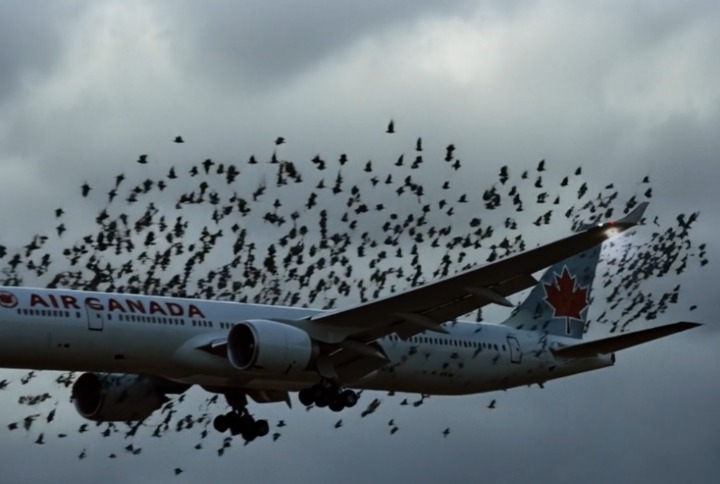In an unusual and heartwarming incident, a commercial pilot experienced a rare encounter when a large flock of birds began following his airplane during a routine flight. What initially seemed like an odd curiosity soon took on a deeper meaning, leaving the pilot emotional and the aviation community intrigued.
The pilot, while navigating the skies, noticed the birds’ persistent presence. Rather than being deterred or concerned, his curiosity grew. After further investigation, he discovered that the birds were not just randomly following the aircraft — they were reacting to something significant that touched their lives.
This extraordinary behavior has sparked widespread interest and raised questions about the connections between humans and wildlife. Experts suggest that such interactions, though rare, can be symbolic or rooted in nature’s complex communication systems. The pilot’s emotional reaction highlights how even in the high-tech world of aviation, nature can surprise us and remind us of deeper bonds with the environment.
The video capturing this event has since gone viral, allowing viewers around the world to witness this remarkable story firsthand. Watching the footage provides a powerful insight into the event’s emotional impact and the extraordinary relationship between the pilot and the birds.
While the exact reasons for the birds’ behavior remain a topic of discussion, the story serves as a reminder of the unexpected moments that can occur in our daily lives. It encourages us to remain curious and open to the mysteries of the natural world.
If you haven’t yet seen the video, it is highly recommended to watch it to fully understand the depth and emotion behind this unique encounter. The pilot’s tearful response shows how profound such experiences can be, even for those who spend their lives navigating the skies
In 2009, an extraordinary aviation event captured the world’s attention when a US Airways Airbus A320 was forced to make an emergency landing on the Hudson River in New York City. The aircraft had struck a flock of Canada geese shortly after takeoff, causing both engines to fail. Thanks to the remarkable skill and calm decision-making of Captain Chesley “Sully” Sullenberger, all 155 passengers and crew survived the harrowing ordeal.
What Happened on January 15, 2009?
The flight was a routine journey from LaGuardia Airport in New York to Charlotte Douglas International Airport in North Carolina. Moments after takeoff, the plane collided with a flock of Canada geese, which were ingested by both engines, resulting in sudden and complete engine failure. The Airbus began to rapidly lose altitude, putting everyone on board in immediate danger.
Captain Sully’s Quick Thinking Saves Lives
Captain Sullenberger, together with his co-pilot Jeffrey Skiles, quickly assessed the situation. With no viable airports within reach, Sully made the courageous decision to land the plane on the Hudson River. Demonstrating exceptional flying skill and presence of mind, he successfully glided the aircraft onto the water’s surface, avoiding bridges and boats in the busy waterway.
The evacuation was swift and orderly, with all 155 passengers and crew members escaping with only minor injuries. The event was hailed as a miraculous feat of aviation safety and pilot expertise.
Impact and Legacy
The “Miracle on the Hudson” not only highlighted the critical importance of pilot training and emergency preparedness but also renewed focus on bird strike prevention at airports worldwide. Bird strikes pose a serious threat to aviation safety, and this incident underscored the need for continued research and safety measures.
Captain Sully’s Life After the Landing
Following this incredible event, Captain Sullenberger retired from commercial flying and turned his focus toward aviation safety advocacy. He has become a public speaker and educator, sharing his experiences and insights to promote safer skies.
Sully authored the book Highest Duty: My Search for What Really Matters, in which he reflects on the values and principles that guided him during the crisis. The book explores leadership, responsibility, and the importance of preparation—lessons that extend beyond aviation.
For his heroism, Captain Sullenberger has received numerous honors, including the Master Pilot Award from the Federal Aviation Administration and the Presidential Medal of Freedom, one of the highest civilian honors in the United States.
